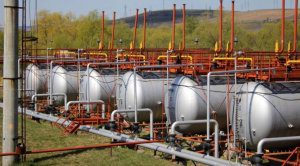 We should explore the possibility of a national energy corridor transmitting Quebec and Labrador hydropower to western Canada, writes Mike Priaro.
We should explore the possibility of a national energy corridor transmitting Quebec and Labrador hydropower to western Canada, writes Mike Priaro.
By Mike Priaro, March 22, 2021
While Norway has embarked on an ambitious program of electrification of its oil and gas facilities, the “Tesla of LNG plants” is not Norway’s Hammerfest LNG plant with its electric motor-driven refrigeration compressors. The Equinor-operated Hammerfest LNG plant, on an island 300 miles north of the Arctic Circle, has processed natural gas from the Snøhvit field in the Barents Sea since 2007.
Natural gas is conveyed in a 160 kilometre pipeline to the facility where the greenhouse gas (GHG) carbon dioxide (CO2) is separated from the natural gas and returned to the Snøhvit field where it is injected in a separate formation under the reservoirs. The liquefied natural gas (LNG) is exported in custom-built ships.
Hammerfest’s three refrigeration compressor trains are equipped with the world’s largest, high-voltage, high-speed 65 megawatt (MW) Siemens synchronous, variable-speed, electric motors that provide high efficiency levels and high availability compared to natural gas-driven refrigeration compressors. Siemens also provides real-time digitized monitoring, analysis and optimization of the compressor trains.
But no, Norway’s Hammerfest is not the “Tesla of LNG Plants” because the electric power used to drive Hammerfest’s refrigeration compressors, despite much-touted local hydro, wind, and tidal power, is generated onsite by five natural gas-burning turbines. It is to be noted that one of the turbines caused a serious fire at the plant in September 2020 resulting in all plant operations being shut down until October 2021.
The “Tesla of LNG Plants” would be Canada’s proposed Kitimat and Saguenay LNG projects which would use low-carbon hydroelectricity to power the LNG plants.
A lot of hydropower is required to run green LNG plants.
For example, the hydropower needed for the Kitimat LNG plant would be two-thirds of the power that would be produced by BC’s under-construction Site C dam. While Site C’s nameplate capacity is 1100 MW, it will have an average generating capacity of about 650 MW. Each of Kitimat LNG’s two process trains would require 200 MW. If the Pacific Trail Pipeline that would supply the natural gas for liquefaction was also electrified, the electricity demand for the entire project would consume all the power BC’s Site C dam will produce.
Kitimat LNG would be the greenest, lowest GHG-emitting LNG plant on Earth, as would GNL Quebec’s proposed Énergie Saguenay LNG Project at Port Saguenay. Énergie Saguenay has some support from the Quebec government but, incomprehensibly, has not obtained Alberta government and industry support even though it would exclusively use Alberta natural gas.
Natural gas liquefied into LNG using hydropower will cut global GHG emissions in half, and eliminate almost all the air pollution, wherever it is exported as LNG that displaces coal-fired power. In the worst example, China, almost 70 percent of electricity is still generated by burning coal.
Kitimat LNG and Énergie Saguenay will be environmental and sustainable energy global leaders that deserve all the support industry and the British Columbia, Alberta, Quebec, and Canadian federal governments can muster.
It is a national shame that Quebec and Labrador hydropower are not transmitted across the country to sustainably drive production of natural gas and gas liquids from shales in Alberta and BC, to power LNG production in BC, and to reduce GHG emissions from the oil sands. In Alberta, three billion cubic feet of GHG-emitting natural gas are burned each day for oil sands mining, in-situ extraction, bitumen processing and upgrading, and for co-generation of electricity.
It is a stated objective of Hydro-Québec to increase its exports beyond its borders and support the decarbonisation of northeastern North America.
Lower energy demand brought on by the pandemic resulted in average export prices of only 4.4 ¢/kilowatthour (kWh) (from 4.9 ¢/kWh in 2019) in the first six months of 2020. This dropped to 4.3 ¢/kWh in the third quarter of 2020. Net electricity export amounts were also down in 2020 compared to 2019 by 1.7 terawatthours (TWh) for the first half of 2020 and by 3.2 TWh for the third quarter of 2020.
Construction of the 1550 MW Romaine hydroelectric project is expected to be complete in 2021 — continuing Quebec’s update and expansion of its transmission infrastructure to support its exportation plans.
Perhaps a national energy corridor transmitting Quebec and Labrador hydropower to western Canada could be negotiated in return for oil and natural gas pipelines to Central Canada and Eastern Canada, and to the East Coast through Quebec. Conversion of an existing, unused TC Energy gas pipeline would provide a secure, all-Canadian route to supply refineries in Sarnia, Nanticoke, Montreal, Levis and Saint John with Canadian crude, and eliminate all foreign oil imports and oil tanker traffic in the St. Lawrence River and Gulf of St. Lawrence.
It is not widely known that an oil pipeline can easily batch dilbit, partially upgraded bitumen, conventional heavy oils, syncrude, conventional oil, light shale oil, intermediate refinery products, and finished refined products such as ultra low sulphur diesel and gasoline. The existing Trans Mountain pipeline to Vancouver has done just that for decades.
Such a national energy corridor would require industry and federal and provincial government leadership, vision, courage and co-operation of the highest order.
Were Sir John A. Macdonald alive today, I have no doubt he would be building a ‘Canadian Pacific Energy Corridor’ from the Atlantic to the Pacific. And he would do it for exactly the same reasons he built the Canadian Pacific Railway — to unite the country from coast to coast and to protect it from American interests.
Mike Priaro, a Lifetime Member of the Association of Professional Engineers and Geoscientists of Alberta, worked in the Alberta oil patch for 25 years and is an independent analyst.




